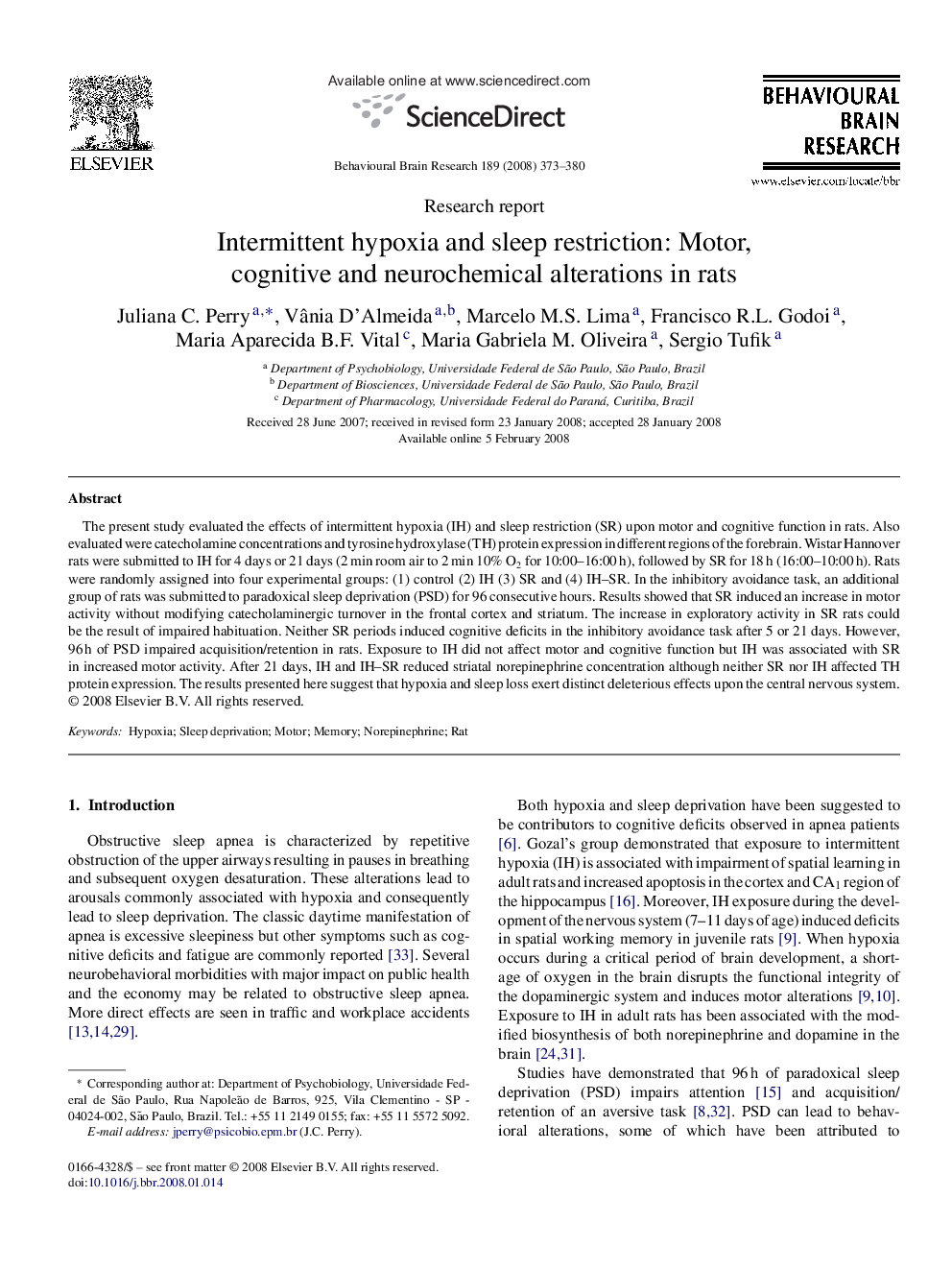| Article ID | Journal | Published Year | Pages | File Type |
|---|---|---|---|---|
| 4315265 | Behavioural Brain Research | 2008 | 8 Pages |
Abstract
The present study evaluated the effects of intermittent hypoxia (IH) and sleep restriction (SR) upon motor and cognitive function in rats. Also evaluated were catecholamine concentrations and tyrosine hydroxylase (TH) protein expression in different regions of the forebrain. Wistar Hannover rats were submitted to IH for 4 days or 21 days (2Â min room air to 2Â min 10% O2 for 10:00-16:00Â h), followed by SR for 18Â h (16:00-10:00Â h). Rats were randomly assigned into four experimental groups: (1) control (2) IH (3) SR and (4) IH-SR. In the inhibitory avoidance task, an additional group of rats was submitted to paradoxical sleep deprivation (PSD) for 96 consecutive hours. Results showed that SR induced an increase in motor activity without modifying catecholaminergic turnover in the frontal cortex and striatum. The increase in exploratory activity in SR rats could be the result of impaired habituation. Neither SR periods induced cognitive deficits in the inhibitory avoidance task after 5 or 21 days. However, 96Â h of PSD impaired acquisition/retention in rats. Exposure to IH did not affect motor and cognitive function but IH was associated with SR in increased motor activity. After 21 days, IH and IH-SR reduced striatal norepinephrine concentration although neither SR nor IH affected TH protein expression. The results presented here suggest that hypoxia and sleep loss exert distinct deleterious effects upon the central nervous system.
Related Topics
Life Sciences
Neuroscience
Behavioral Neuroscience
Authors
Juliana C. Perry, Vânia D'Almeida, Marcelo M.S. Lima, Francisco R.L. Godoi, Maria Aparecida B.F. Vital, Maria Gabriela M. Oliveira, Sergio Tufik,
